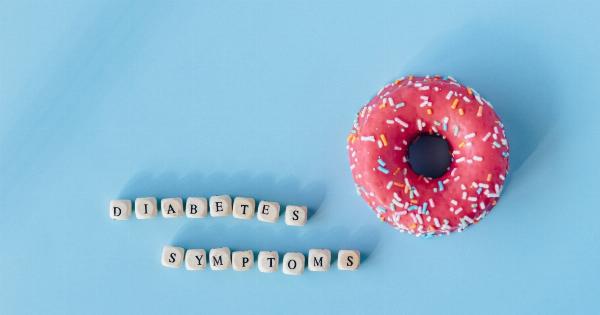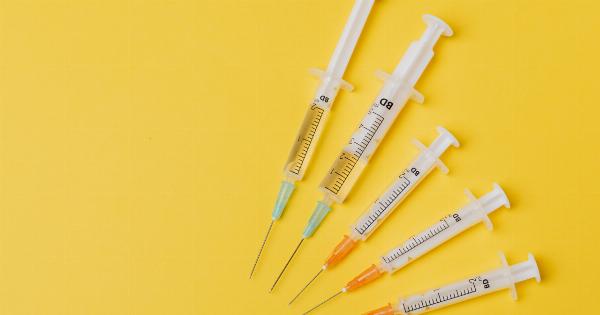Premenstrual syndrome (PMS) is a common condition that affects many women. It can cause mood changes, cramps, bloating, and other symptoms that can be uncomfortable and disruptive. Fortunately, there are many foods that can help ease PMS symptoms.
By incorporating these foods into your diet, you can help alleviate the discomfort of PMS and feel better overall.
1. Leafy Greens
Leafy greens like kale, spinach, and Swiss chard are rich in calcium, which can help alleviate cramps and reduce mood swings.
2. Fatty Fish
Fatty fish like salmon, mackerel, and sardines are high in omega-3 fatty acids, which can help reduce inflammation and alleviate depression and anxiety.
3. Nuts and Seeds
Nuts and seeds like almonds, walnuts, and flaxseeds are rich in magnesium and vitamin E, which can help reduce bloating and alleviate breast tenderness.
4. Bananas
Bananas are rich in vitamin B6, which can help alleviate mood swings and reduce symptoms of depression.
5. Avocados
Avocados are rich in potassium, which can help reduce water retention and alleviate bloating.
6. Yogurt
Yogurt is rich in probiotics, which can help regulate digestion and alleviate constipation.
7. Dark Chocolate
Dark chocolate is rich in antioxidants and magnesium, which can help reduce inflammation and alleviate cramps.
8. Soy Products
Soy products like tofu and edamame are high in phytoestrogens, which can help regulate hormone levels and alleviate hot flashes and night sweats.
9. Ginger
Ginger is rich in anti-inflammatory compounds, which can help alleviate pain and reduce cramps.
10. Turmeric
Turmeric is rich in curcumin, which has anti-inflammatory properties that can help alleviate pain and reduce bloating.
11. Pumpkin Seeds
Pumpkin seeds are rich in magnesium, which can help reduce bloating and alleviate breast tenderness.
12. Red Meat
Red meat is rich in iron, which can help alleviate fatigue and reduce symptoms of anemia.
13. Whole Grains
Whole grains like brown rice and quinoa are rich in fiber, which can help regulate digestion and alleviate constipation.
14. Watermelon
Watermelon is rich in potassium and water, which can help reduce water retention and alleviate bloating.
15. Eggs
Eggs are rich in protein and vitamin D, which can help alleviate fatigue and reduce symptoms of depression.
16. Berries
Berries like strawberries, blueberries, and raspberries are rich in antioxidants and vitamin C, which can help reduce inflammation and alleviate cramps.
17. Oats
Oats are rich in magnesium and fiber, which can help reduce bloating and regulate digestion.
18. Oranges
Oranges are rich in vitamin C, which can help reduce inflammation and alleviate cramps.
19. Broccoli
Broccoli is rich in calcium and fiber, which can help reduce bloating and alleviate constipation.
20. Chickpeas
Chickpeas are rich in magnesium and fiber, which can help reduce bloating and regulate digestion.
21. Lentils
Lentils are rich in iron and fiber, which can help alleviate fatigue and regulate digestion.
22. Sweet Potatoes
Sweet potatoes are rich in vitamin A, which can help alleviate acne and other skin problems associated with PMS.
23. Salmon
Salmon is rich in vitamin D, which can help reduce symptoms of depression and anxiety.
24. Spinach
Spinach is rich in magnesium, which can help reduce bloating and alleviate breast tenderness.
25. Tomatoes
Tomatoes are rich in vitamin C, which can help reduce inflammation and alleviate cramps.
26. Asparagus
Asparagus is rich in vitamin K, which can help alleviate heavy bleeding and reduce menstrual cramps.
27. Cinnamon
Cinnamon is rich in anti-inflammatory compounds, which can help alleviate pain and reduce bloating.
28. Chamomile Tea
Chamomile tea is rich in anti-inflammatory compounds, which can help reduce cramps and alleviate anxiety.
29. Red Bell Peppers
Red bell peppers are rich in vitamin C, which can help reduce inflammation and alleviate cramps.
30. Watercress
Watercress is rich in calcium and magnesium, which can help alleviate breast tenderness and reduce menstrual cramps.




























